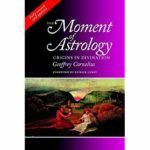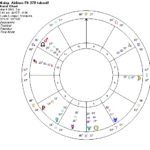Geoffrey Cornelius has taken a wonderful look at astrology and skepticism and concludes that horary is a tool for divination in The Moment of Astrology. While somewhat philosophical, this well-researched book is also full of gems from the history and practice of astrology. 
Scientific studies of astrology often don’t work, and the author feels that our reliance on quantification “threatens to undermine the whole way of proceeding with symbols.” He shares an often overlooked conclusion by Jung in his analysis of married couples, that the attitudes and desires of the person doing the research will influence the result (kind of a quantum theory point of view).
We’re treated to a survey of the history of astrology, from predestination to inclination and more mystical approaches. He sees his own perspective as originating in Mesopotamian, Greek and Roman models of divination, which necessitated a participatory relationship between the gods and humans. He also addresses the odd circumstance that many practicing astrologers experience, of getting the right answer from the wrong chart.
Geoffrey Cornelius sees horary or electional astrology as seeking a blessing, and that the outcome is not compelled. There is an allegory between planets and events. In his own work, Cornelius tries to answer the question of how to resolve the situation “to the good fortune” by presenting the client with possibilities. He reminds us of Lilly’s admonition to “afflict not the miserable with the terror of a harsh judgment.”
There are few actual horary charts included, but the interpretations are fascinating. Geoffrey analyzes the horoscope presented with the 1975 Humanist article (where scientists attacked astrology), Charles Carter’s query about horary itself, and perhaps most compelling, his own horary about an exploitative tenant of his aunt’s. These make terrific studies.
The horary revival is seen as beginning with Olivia Barclay’s reprint of William Lilly and Derek Appleby’s book, both in 1985. This surprised me, but I was reminded that in the U.S., Ivy Goldstein-Jacobson’s horary book came out in 1960 and Barbara Watters’ in 1975, so the American revival was actually earlier.
The Moment of Astrology is an in-depth, thorough and thoughtful work. I took my time reading it as there is much to consider and it can be slow going at times. I can’t agree with all of Geoffrey Cornelius’ conclusions, but he is always thought provoking.
Buy The Moment of Astrology on Amazon.com.

